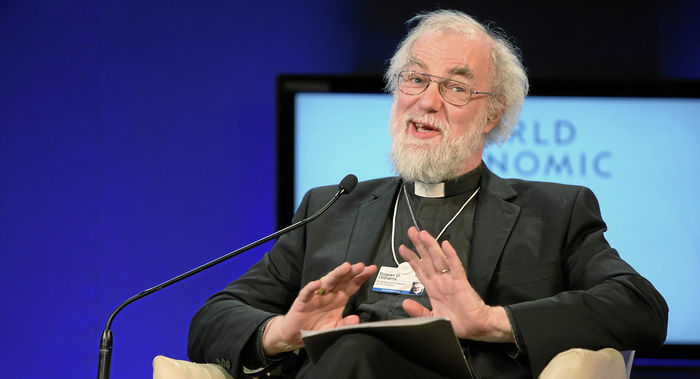Racism testimonies within Divinity Faculty surface
One lecturer was said to have mocked a Black student’s voice, referred to travel grants to ‘bongo bongo land’, and defended the actions of Christian missionaries in Africa

Content note: This article contains discussion of racism
Testimonies of racism within the Divinity Faculty have surfaced, including allegations that a lecturer mocked a Black student’s voice, referred to travel grants to “bongo bongo land”, and defended the actions of Christian missionaries in Africa.
The anonymous testimonies have been published on the “Divine Dissent” website: a self-proclaimed student campaign that works to “expose alt-right influence in the Divinity Faculty.”
The dissenters have previously condemned invitations to right-wing academics Jordan Peterson and Charles Murray, and called for the University to investigate the alleged “Thiel network” – a group of right-wing academics allegedly backed by Trump donor Peter Thiel.
A postgraduate student claims that during their first encounter with the Faculty, a “senior member of staff” said that there were travel grants available to go to “Bongo Bongo Land.” They said they were deeply shocked by the comment but also by “the lack of response” from others in the room, which they felt was “a clear indication of Faculty culture.”
Another student claims that when one of the only two Black students in their year answered a question in a language class, they were forced to repeat it because the teacher had “never heard someone speak like that before.” In subsequent classes the lecturer remarked how “odd” the student spoke, saying “I think you are the funniest person I have ever met in my life.” Despite the student explaining they had been born in Britain and privately educated, the lecturer made them repeat what they said in front of the class.
A supervisor also allegedly defended missionaries bringing Christianity to Africa on the grounds that before they came, “there were some tribes in Africa that used to eat each other and that’s not a good thing by any moral standard.”
The latest series of revelations comes amidst a wider row over free speech within the Faculty.
Critics accuse the Faculty of falling short of the anti-racist commitments they made in their statement following George Floyd’s death in May 2020, which urged members to “think more deeply about race and learn from those who have been marginalised.”
They cite invitations to controversial figures like Jordan Peterson, who dismissed racism as “indicative of low resolution thinking” on Question Time last year, and Charles Murray, who notoriously suggested IQ varied according to race, as evidence.
The Faculty have defended themselves against these concerns on the basis of free speech. Last month (17/12) Divinity Head James Aitken sent an email to students which affirmed his recognition of the “right of any member to facilitate discussions on topics within the law.”
Following the email, Divinity Professor Judith Lieu told Varsity that the absence of any reference to the post-George Floyd statement in Aitken’s email, suggested there was a “danger” that “those aspirations may be forgotten.”
Former Archbishop of Canterbury Rowan Williams said that “the current challenges offer an opportunity for the Faculty to clarify its collective commitments on various matters, especially on issues of race and diversity.”
The Dissenters’ strategy mirrors that used by sexual harassment awareness campaign Everyone’s Invited: using anonymous testimonies to put pressure on institutions to tackle discrimination; the latest step taken by the “Divine Dissenters” to “materially commit to anti-racist work.”
Varsity contacted the Divinity faculty for comment.
 News / Uni to ‘review’ tripos rankings and weekend lectures in undergrad teaching overhaul10 April 2025
News / Uni to ‘review’ tripos rankings and weekend lectures in undergrad teaching overhaul10 April 2025 News / Rowing row continues as Oxford and Cambridge scrap women’s trial race9 April 2025
News / Rowing row continues as Oxford and Cambridge scrap women’s trial race9 April 2025 News / PETA urges Cambridge dictionary to change ‘derogatory’ rat definition11 April 2025
News / PETA urges Cambridge dictionary to change ‘derogatory’ rat definition11 April 2025 News / First candidate to announce chancellorship bid pledges to tackle bullying 12 April 2025
News / First candidate to announce chancellorship bid pledges to tackle bullying 12 April 2025 Lifestyle / Blind Date: ‘She owes me a round of drinks!’13 April 2025
Lifestyle / Blind Date: ‘She owes me a round of drinks!’13 April 2025





